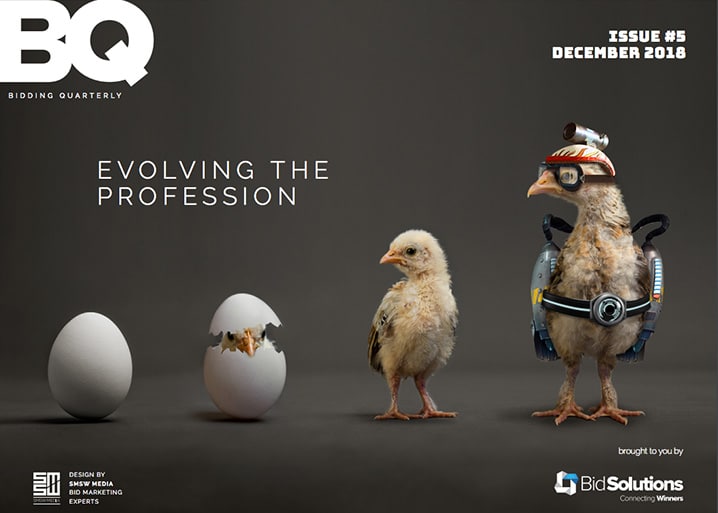So many conversations with my fellow proposal professionals come back to age-old themes. How do we get our organisations to take qualification more seriously? What’s the best way to develop a winning strategy? How do we write inspiring content and make it look fabulous? What tactics can help us to lead proposal teams, especially in a world where ‘virtual’ is now ‘business as usual’?
If you don’t have a great library of top-notch pre-written content (and the processes, team and tools to manage it), others are a decade ahead of you. If you’ve not trained everyone involved in proposals, your better-skilled competitors will have the advantage. In a demanding world, companies who haven’t sorted the basics need to sort themselves out. Now.
Tactics evolve, of course. Fresh techniques make us more effective and efficient. The language of bidding changes: there’s far more emphasis on ‘value’ now than there was a few years ago, for example. But what’s new or trending?
Here’s my list of the key areas that already-successful proposal teams wanting to further sharpen their act in 2019 should explore:
- Establishing clear processes to manage bid competitive intelligence – for so long an overlooked discipline in our profession.
- Creating a cadre of highly-trained peer reviewers, delivering real value from the ‘final document review’ (AKA ‘Red Team’, if you love jargon).
- Entwining proposal support far more closely in the sales pipeline. (The best teams out there will already have started work on renewal proposals for key contracts due to expire in late 2019, as well as on pre-proposal planning and ‘Challenger Sale’-style proposals for all of next year’s will-win deals).
- Ensuring a robust capacity plan is in place for proposal support, aligning the effort and skills required to the volume and mix of support needed – so key to protecting life/work balance for bid and proposal staff.
- Moving the training focus from corporate to personal. Classroom training is still the cornerstone for any good programme. But more personalised, creative approaches are ever more important to embed learning. Video-based and online training. Internal awards programmes. Most critically, 1:1 coaching.
- Embracing the change in APMP’s Practitioner qualification, as it moves in 2019 from the long-standing questionnaire to a new scenario-based exam. Might this finally trigger some more experienced people to step up from the entry-level Foundation qualification that so many have passed? (And while we’re about it, is this the year in which more leaders will actually show leadership, by submitting their Professional impact paper – something surprisingly few have done in the UK?)
- Getting proposals into the boardroom. What you do is critical to your organisation’s success. If you’re not getting airtime and genuine sponsorship from your C-suite, will this be the year in which you’ll finally knock at their door – and then force it open?
It’s exhilarating working in a profession that’s developing so fast. And I know that it can feel challenging to build the fire department while you’re continuing to fight fires. But it’s not always enough to do things better. Perhaps 2019 is the year in which you need to do different and better things?
This article was written by Jon Williams.

